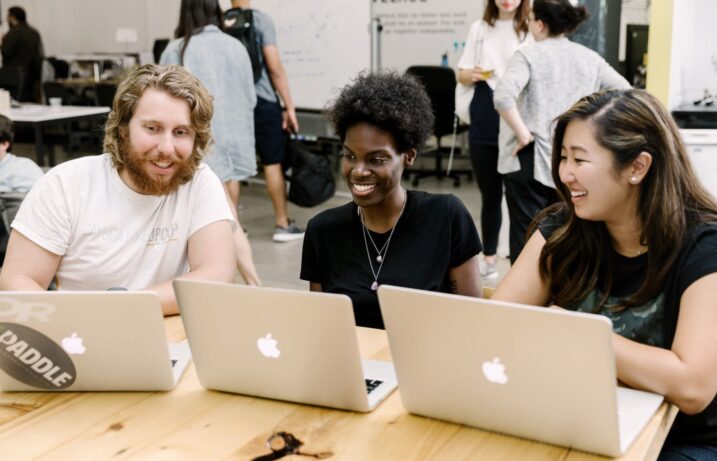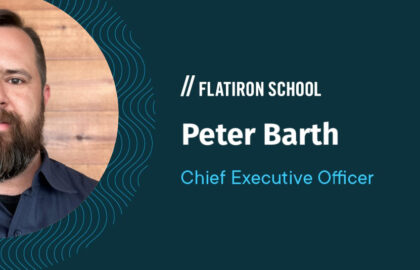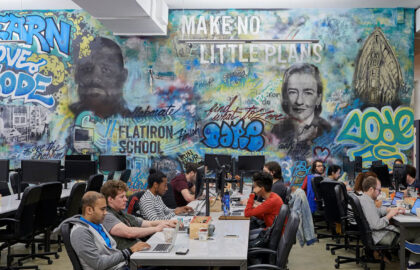This article, a longtime reader-favorite, has been updated with brand new content from our Admissions team and now appears on SwitchUp.
To get into a selective coding bootcamp like Flatiron School, prospective students have to go through a careful admissions process with hundreds of other applicants. For many, finding ways to stand out among a huge pool of qualified, smart people is a daunting prospect. To see other students’ journeys and their experiences of getting in and attending the program, check out our reviews on Career Karma.
How can you show you’re going to be a great programming student and member of a technical community, especially if you’re new to the field? Luckily, after speaking with thousands of applicants and ushering them through the application process here at Flatiron School, we’ve found a few tips that can increase your chances of success when applying to a coding bootcamp, whether that’s Flatiron School or another program, online or in-person.
1. Stop Reading; Go Build Something
How will a school know you’re going to love programming? And just as important: how will you know? It isn’t always easy to tell just from talking to an applicant (on my end) or reading about code (on yours). The surest way to know in both cases is to see that potential students have actually started studying on their own, that they’re actually doing a bit of programming before applying.
You don’t have to be an expert, but it benefits you and the admissions team if you’ve at least started exploring the wealth of free coding resources available to you online. For example, there’s Flatiron School’s free Intro to Javascript and Intro to Ruby courses. When seeking out free courses, make sure they’re aimed at helping you build something that you can show the admissions team (our free Intro to Ruby course culminates in you building a game of Tic Tac Toe, for example).
Whether you’re seeking to program for the 60+ hours a week in an immersive coding bootcamp or self-pace your studies online alongside a job, joining a coding bootcamp is a huge commitment. A lot of admissions teams’ decisions really come down to whether or not they think applicants know what they’re getting into and are going to love what they’re learning. And for your own sake, you should know that, too.
2. Show Passion
Any good coding bootcamp wants to know you’re passionate about learning in general and learning to code specifically. Ideal applicants don’t see programming as simply a means to an end (i.e. learn a bit of code, get a cool tech job, and then stop learning). Rather, they recognize it as a craft that requires lifelong learning—and that takes passion.
This is actually one of the hardest things for us to assess in the admissions process. As I mentioned, we look for people who have at least started learning to code on their own. But we also seek out people who have demonstrated passion—the desire to devote yourself to something and learn everything you can about it—in other areas of their lives. Do you love to cook? Do you blog prolifically or volunteer often? Are you a whiz at paper folding or competitive balloon animal creation? Include that in your application!
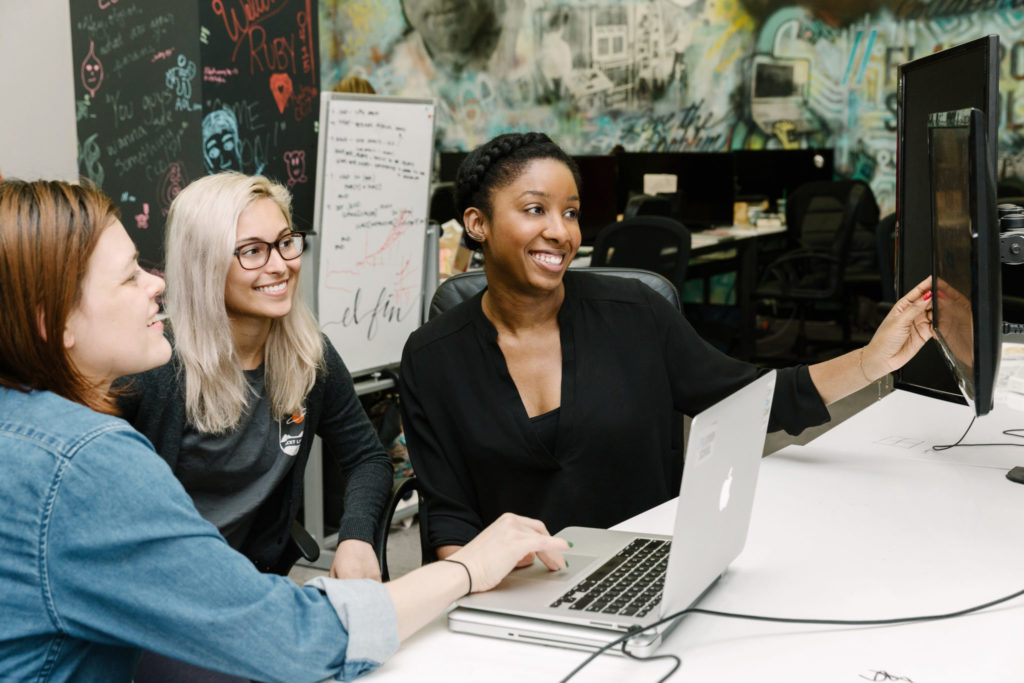
3. Be Determined
It’s important to know this upfront: learning to code is really hard. It will require you to think in brand new ways and deal with tremendous amounts of frustration and self-doubt. As such, a big part of success in learning to code is finishing what you start—not getting 20% of the way through a lesson, deciding it’s too hard and moving onto another, getting 20% through it, deciding it’s too hard, and on and on. You’ll get so much more out of finishing one thing completely than starting and dropping many things. And from there, continuing to learn the next subject is that much easier.
So, have you worked on other projects or pursuits that have required the perseverance to get over those initial hurdles? What can you point to—pet projects, previous careers, etc.—that shows how you’ve pushed past learning obstacles before?
4. Demonstrate Smarts
To pack everything you need to know to get a job as a junior developer into a three month span, coding bootcamp courses need to move through their curricula fast. So admissions teams want applicants that show the intellectual stamina and curiosity they’ll need to pick up material quickly and not get overwhelmed.
That said, this absolutely does not mean you have to be a math or science genius—or that you’ve even gone to college at all. There’s a misconception that programmers are employed to be quantitatively-minded factory workers who churn out code; but like mastering an instrument or composing an essay, programming is actually a creative mode of expression that requires people to think about problems in highly structured ways. So keep in mind, there are a lot of ways to show your smarts—if you’re a great communicator, a skilled musician, a meticulous architect, you might have this kind of aptitude, and it is way more important to admissions teams than where you went to school or how good you are at coding when you apply.
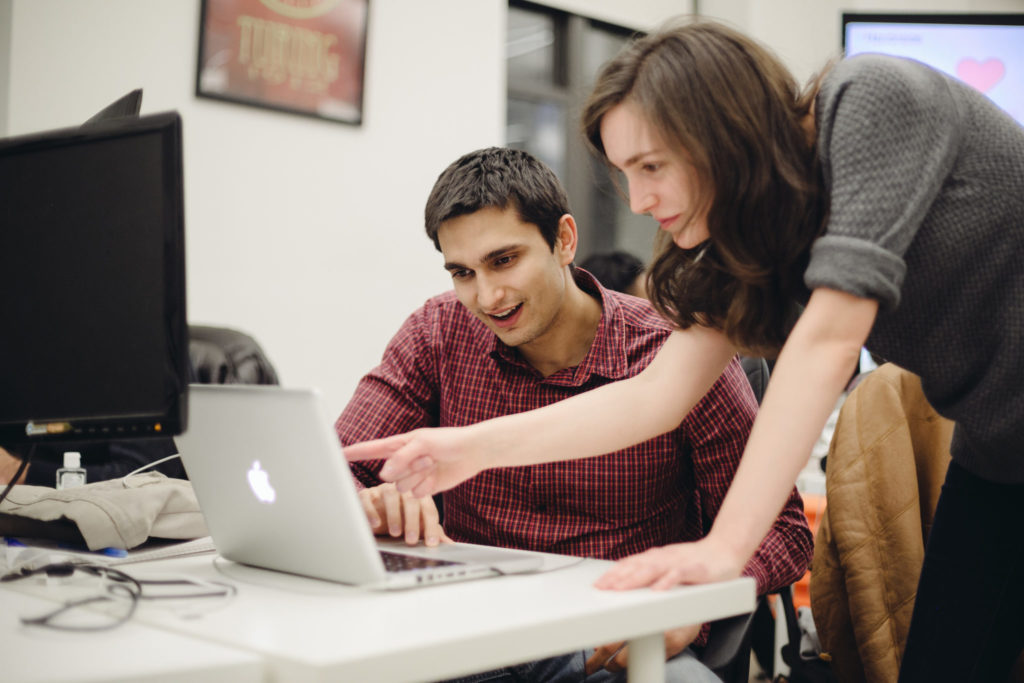
5. Be Interesting; Be Yourself
Tell us what makes you you. Share whatever interesting perspective you can bring to the table—how or where you grew up, what your values you are, why you’ve made certain decisions in your life.
Why? Because coding bootcamps like Flatiron School aren’t just admitting individual students to their programs—they’re assembling and cultivating communities. Programming is a creative endeavor, so why wouldn’t we work hard to bring people together—whether they are sitting next to each other on a physical campus or collaborating online across continents—that can boost the creativity of the entire group?
The biggest goal of the admissions process is to assemble a class that represents a purposefully diverse student body. While this certainly means diversity in terms of race, ethnicity, and gender, we go out of our way to seek diversity of backgrounds, experiences, and perspectives to create a community of learners who may not have found each other otherwise. For example, previous Flatiron School classes have included venture capitalists, entrepreneurs, professional athletes, chemists, professional poker players, and rocket scientists (literally!).
6. Say Hello
Coding bootcamps hold public meetups and events both on their campuses and online nearly every week (here are Flatiron’s; you can search Meetup.com for others). So stop by (or virtually attend) and introduce yourself. You’ll get a better sense of where you’d be learning, and on our end (on top of having had the pleasure of meeting you!), we’ll see that you’re serious about doing your research and making an educated decision about your next steps as a programming student.
Admissions teams have to make a lot of tough choices in the admissions process, and you’ll have your own to make on how to best express your experience and goals through that process. If you want to stand out in your application, show that you’re smart, kind, passionate, and, most of all, totally excited about learning—no matter which program you attend, you’ll be doing a whole lot of it. Good luck!
